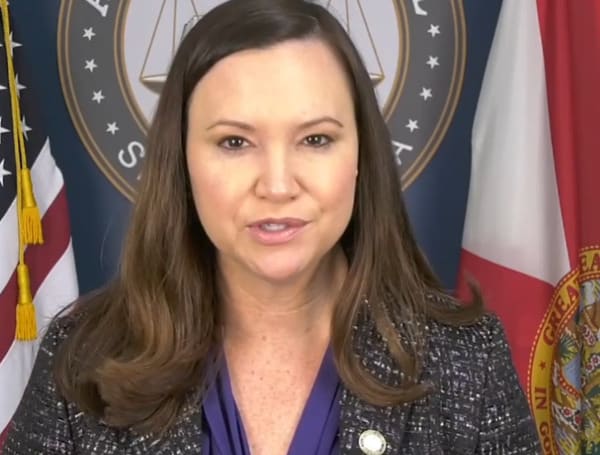Florida Attorney General Ashley Moody is asking a federal judge to toss out a challenge to a law that placed additional restrictions on petition gatherers for ballot initiatives.
Lawyers in Moody’s office filed a 17-page motion Friday arguing that the lawsuit should be dismissed on a series of grounds. The lawsuit, filed in January, contends that the 2019 state law violates First Amendment and equal-protection rights.
The law, passed by the Republican-dominated Legislature and signed by Gov. Ron DeSantis, made it a crime to pay petition gatherers based on the number of signatures they collect, a change that experts predicted would double the cost of getting initiatives on the ballot.
The law also requires petition forms to include information identifying petition gatherers, who are required to register with the state. Plaintiffs include the Florida Right to Pray Together political committee, which is seeking to place a proposed constitutional amendment on the 2024 ballot, and the Virginia-based nonprofit group Citizens in Charge.
They contend, in part, that the law violates equal-protection rights because the compensation restriction and personal identifying requirements only apply to paid circulators working on ballot initiatives and are not imposed on workers who volunteer or gather signatures for political candidates to qualify for elections. But Moody’s motion said the plaintiffs’ attorneys did not provide adequate information to back up the equal-protection and First Amendment claims.
“Plaintiffs specifically challenge the requirements for paid circulators to provide the Department of State their name, permanent address, temporary address (if applicable), and date of birth,” the motion said, addressing a First Amendment issue in the case.
“Plaintiffs claim that the information that circulators must submit to the Department of State is ‘made available to the public at all times while the circulator is engaged in the collection of initiative petition signatures.’ But they do not allege how the information is made available to the public the entire time a circulator is gathering signatures. … This lack of material facts describing how a paid circulator’s name, permanent and temporary addresses, and date of birth are ‘made available to the public at all times’ results in a failure to state a cause of action upon which relief can be granted.”
The case has been assigned to U.S. District Judge Robert Hinkle.
Visit Tampafp.com for Politics, Tampa Area Local News, Sports, and National Headlines. Support journalism by clicking here to our GiveSendGo or sign up for our free newsletter by clicking here.
Android Users, Click Here To Download The Free Press App And Never Miss A Story. Follow Us On Facebook Here Or Twitter Here.

